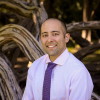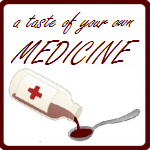 Anjani Amladi (2 Posts)
Anjani Amladi (2 Posts)Contributing Writer Emeritus
The Commonwealth Medical College
Anjani Amladi is a Class of 2015 medical student at The Commonwealth Medical College in Scranton, Pennsylvania. She was born and raised in the San Francisco Bay Area, and went to the University of California at Davis where she received her undergraduate degree in biological sciences. She balances the rigors of medical school with extensive writing, and finds inspiration in her daily interactions with others. She takes pride in being a dedicated sister, daughter, student, friend and "dog mom." She has a passion for people and writes in honor of those who have enriched her life.
After arriving at the hospital, scrubbing in and warming up with a few anatomy questions with my attending, I was relaxed and ready to assist with the upcoming thyroidectomy. My patient, who will be referred to as “M,” was a 17-year-old girl who presented to the office with dizziness. After an extensive workup it was discovered that her symptoms were due to thyroid dysfunction. The surgery was meant to be a straightforward case, but the …
I read the latest progress note: ¨67-year-old male with metastatic lung cancer. Mildly agitated. Pain controlled with morphine.¨ I walk into a single room to see a frail man looking worn beyond his years. I introduce myself and ask if it is a good time to chat. He looks away and tells me that now is not a good time. I can see he has just received his lunch tray. Fair enough. I would not …
[ca_audio url=”http://in-training.org/wp-content/uploads/2013/07/03-Young-and-Beautiful-1.mp3″ width=”500″ height=”27″ css_class=”codeart-google-mp3-player” autoplay=”false”] We’re all familiar with those epidemiology pie charts that preface most of our pathology lectures. They’re the slides that everyone tunes out and gleefully skip over when reviewing for the exam, minus the few pertinent buzzwords: risk factors, mean age, gender and common symptoms. After all, “think horses, not zebras” is one of the most famous adages in medicine and rightfully so, because biology operates on efficient systems in …
Upon entering medical school, we all knew that we would have to deal with some difficult diagnoses, emotional situations and even death. In fact, even the earliest portions of our training were centered around a cold, lifeless cadaver that we cut into to learn the intricate anatomy and beauty of the human body. To a first-year medical student, gross anatomy symbolizes the profound meaning of what it is to embark on the long journey of …
The woman sits anxiously in the exam room, fidgeting with her green clay necklace. She was referred because of an incidental finding on a physical exam mandated by her insurance company. Another woman in her 50s, with streaks of gray hair, calmly sits in the room next door with her head held high, preparing herself for the worse. She had felt a lump on her breast while showering. The corner room contains a young Mexican …
I’m sitting by the window in a hospital room with my eight-year-old sidekick who is being treated for rhabdomysarcoma, here for chemotherapy. Sidekicks is a student-led initiative at UMass Medical School that matches medical students with pediatric oncology patients in order to build long-term, non-medical relationships. He is watching his favorite cartoons and so he is unresponsive to my attempts at engagement. My own five-year anniversary of being in remission from Hodgkin’s lymphoma just passed …
 Reza Hosseini Ghomi (3 Posts)
Reza Hosseini Ghomi (3 Posts)Contributing Writer Emeritus
University of Massachusetts Medical School
I entered medical school after some wandering, not having a clue I would be here only five years after finishing college. I spent several years trying to find a place that felt right and eventually learned to quiet the torrent in my head enough to hear the messages from my heart and gut. I spent a short while in systems engineering for the Navy, but my experience as a patient with Hodgkin’s Lymphoma soon led me elsewhere. I ended up finding myself in basic science and imaging research, eventually leading to a graduate degree in biomedical engineering. I still didn't quite feel at home and realized what I really sought was the doctor-patient relationship I've read about, experienced, and admired. I felt I finally knew how I could feed my appetite for solving problems from the core and improving systems while also maintaining close contact with those I serve. This is a quote that has helped many times in my life.
"Until one is committed, there is hesitancy, the chance to draw back, always ineffectiveness. Concerning all acts of initiative there is one elementary truth the ignorance of which kills countless ideas and endless plans: That the moment one definitely commits oneself then providence moves, too. All sorts of things occur to help one that would never have otherwise occurred. A whole stream of events issues from the decision, raising in ones's favor all manner of unforeseen incidents and meetings and material assistance which no man could have dreamed would come his way. Whatever you can do or dream you can, begin it! Boldness has genius, power, and magic in it."
-Johann Wolfgang von Goethe






